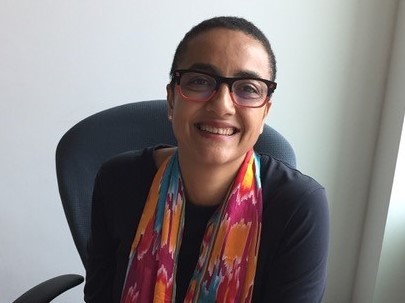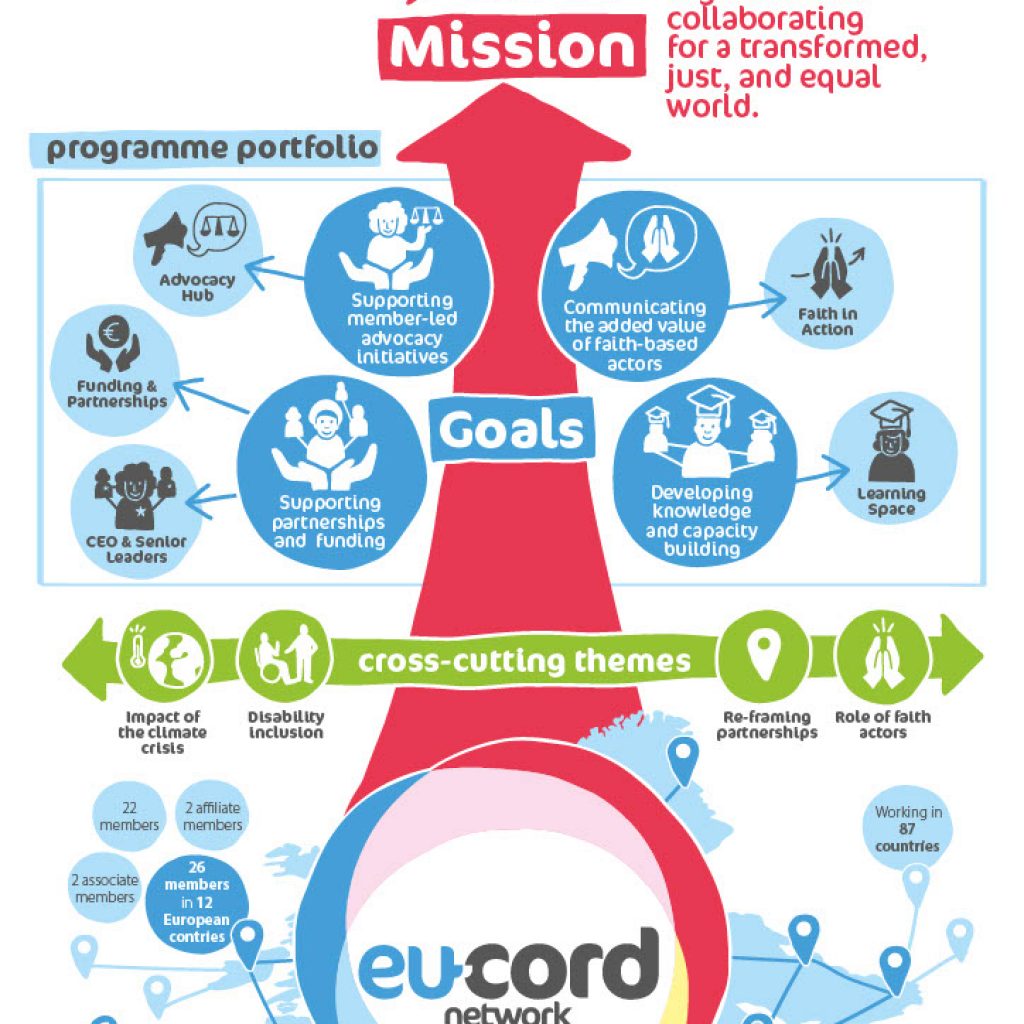Introduction to EU-CORD’s new strategy given by CEO Ruth Faber at the November 2021 General Assembly.
In June of 2020, a certain type of email started to arrive in my inbox. They came from different sources, but they all contained the same two pieces of information. The first was an apology, and the second, a desire to listen.
Perhaps, in the wake of the Black Lives Matter movement, your organisation sent out similar messages. From the EU-CORD secretariat, there was a silence. There were two reasons.
The first, as a person of colour, I was personally annoyed by the white privilege – that these organisations were now willing to hear the stories of black people (thank you for giving me permission), and the second, a suspicion that once the tweets and press releases had been circulated, that nothing much would change and indeed, my experience has been that while there is some evidence of change, in recruitment practices, difficult discussions on colonialism and the development sector can be deemed too sensitive and shut down.
I start with this because strategy is written in context; we look at the world around us, take stock of where we are and consider how we want to be.
For example,
On the one hand, there should be the existential discussions around the role, value, and privilege of northern NGOs, and on the other, we see that the inequality gap is widening, and the impact of unjust systems and institutions that brought our organisations into being are still evident in all parts of the world. If we are to stay relevant, we cannot ignore one discussion at the expense of the other.
A strategy is often associated with newness, but it is hard to say that we are not traditional. As a Christian network, we frequently reference a book that is between 3,400 and 1,900 years old. We have a foundation for our motivation, but we need to look at an ancient text with new eyes.
We can also see how interlinked many of the issues that we work on are.
Tabeth has been leading our work on covid vaccine inequality. While most EU-CORD members would not describe themselves as working in healthcare, this issue is important to all as without access to the vaccine whole communities remain at risk irrespective of the type of programme that you run.
We have seen that a lack of access to the covid vaccine has prevented many voices, representing countries most currently impacted by the climate crisis, from being present in Glasgow for COP26. In Glasgow, we also saw the hypocrisy of the UK government, co-host of the first World Disability Summit, unable to facilitate the participation in the first day of negotiations of the Israeli Energy Minister Karin Elharar who happens to require the use of a wheelchair.
As our most recent General Assembly, we approved new Articles of Association for the network. A somewhat dry experience, but apart from clarifying some legal updates, there are some fundamental changes. The new articles extend our activities as a network not just to its members but to their national implementation partners. For me, this is a first step to sharing our power, privilege and re-thinking our northern European network role.
You can find more on our 2022+ strategy and the drivers behind it here.
With the strategic direction agreed it is time to move from the what to the how. At the heart of the how is the essential intent of the network ‘to build connections and mobilise the network on issues that matter to members.’ It requires us to be more focused and targeted in what we do and, amongst the many activities, to identify the most important – the flagship activities.
It also requires us to step up. It’s not for nothing that our strategy strapline is ‘rising to the challenge.’ We must make more use of our voice, take more risks and be more engaged.
I want to come back to where I started with this strategy introduction. If there was silence a year ago to Black Lives Matter, then my response, our response, to the need for a changing narrative, is embedded in the strategic direction.
I can now reveal that it’s not without purpose that our strategy has the title ‘Rising to the Challenge.’ It is a deliberate reference to the classic poem ‘I Rise’ by African American poet Maya Angelou.
The poem speaks of the African, black, and female experience from struggle to the ownership of our own rising. It speaks of resistance, strength, reclamation, and hope. I share here the first and final stanzas:
I Rise, Maya Angelou
You may write me down in history
With your bitter, twisted lies,
You may trod me in the very dirt
But still, like dust, I’ll rise.
…..
Out of the huts of history’s shame
I rise
Up from a past that’s rooted in pain
I rise
I’m a black ocean, leaping and wide,
Welling and swelling I bear in the tide.
Leaving behind nights of terror and fear
I rise
Into a daybreak that’s wondrously clear
I rise
Bringing the gifts that my ancestors gave,
I am the dream and the hope of the slave.
I rise
I rise
I rise.






